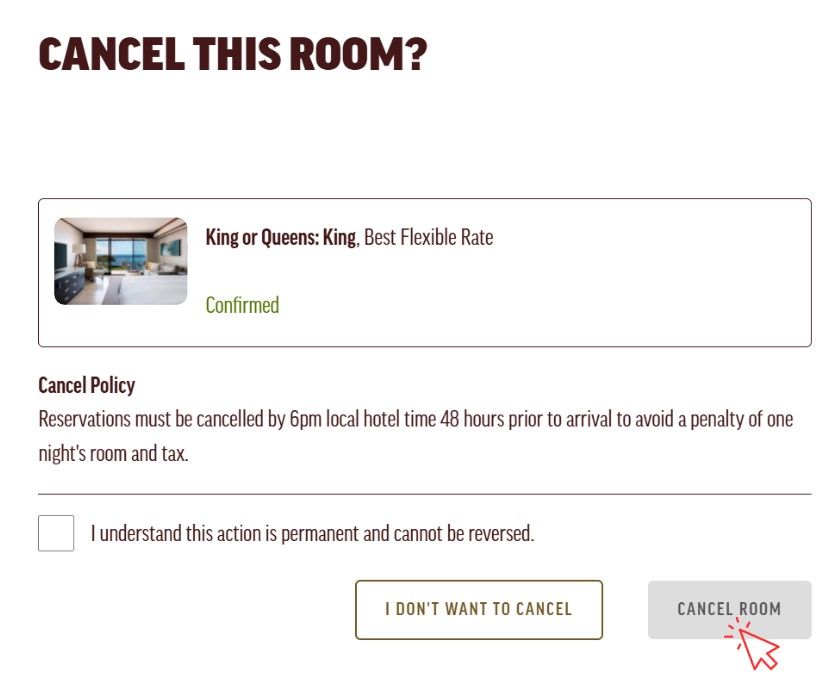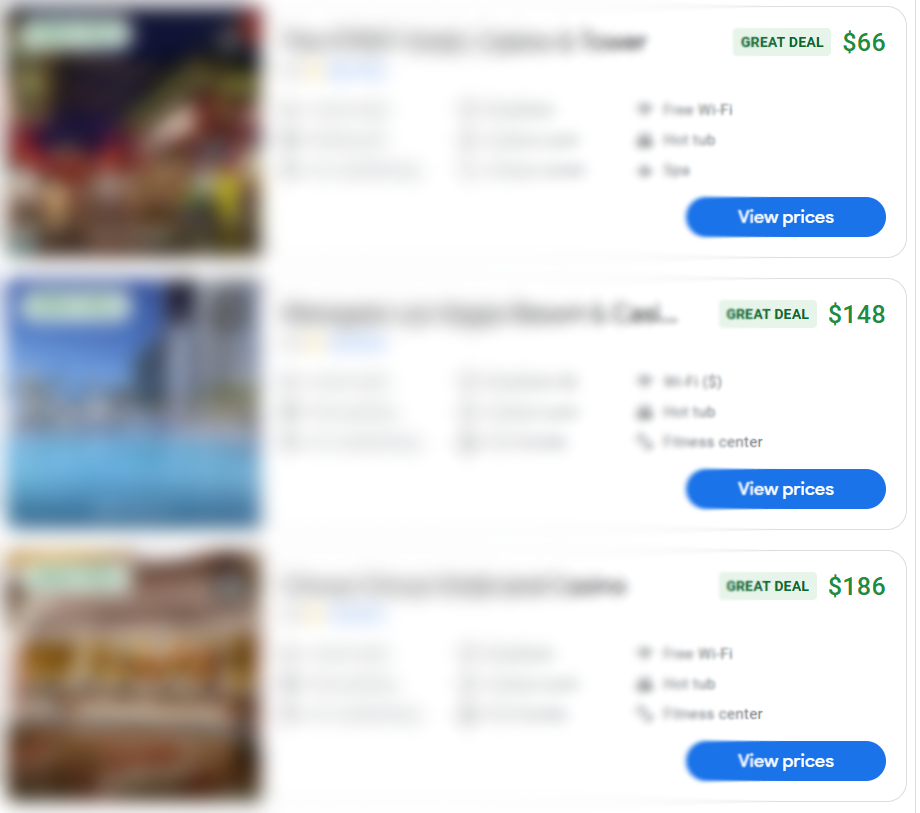Blog Layout
From Time-Savings to Revenue Growth: Yorktown Beach Hotel
August 20, 2024
Virginia is for lovers - and history buffs.

Yorktown Beach Hotel, a charming hotel located on the York River in Yorktown, Virginia, faced significant challenges in managing their room pricing strategy:
- Manual pricing was time-consuming and complex, with the owner and general manager, Matt Bowery, spending countless hours each week adjusting room rates for multiple room types over their long booking window.
- As the only hotel in Yorktown, they lacked benchmarks for setting competitive rates.
- The leisure-driven market required quick responses to weather changes and last-minute cancellations to avoid revenue losses.
This combination of factors made it critical for the hotel to find a more efficient and effective pricing strategy to remain competitive.
The Solution
Yorktown Beach Hotel partnered with PricingService.ai to implement a dynamic, autonomous room pricing solution. The service provided:
- Automated price adjustments based on real-time booking activity, updated six times a day.
- A user-friendly interface that allowed Matt to easily oversee the pricing strategy.
- Consistently optimized pricing that captures future demand trends without manual intervention.
The Results
Since implementing PricingService.ai, Yorktown Beach Hotel has experienced remarkable improvements:
- The hotel's revenue grew by 21% in 2023 compared to 2022. In the first six months of 2024, revenue has grown 11% year over year.
- Matt has completely eliminated the time previously spent on manual pricing adjustments, allowing him to focus on other critical aspects of hotel management.
- The automated system ensures that room rates are always optimized, capturing future dates and responding to demand changes seamlessly.

"PricingService.ai has been a fantastic group to work with. I can’t tell you how much more efficient I feel like I am with my time. I highly recommend the service and look forward to working with them for many years to come."
Matt Bowry, Owner and General Manager
Ready to see the difference?

January 15, 2025
Are you leaving money on the table by sticking to static rates? In today’s competitive hospitality landscape, independent hoteliers must adapt quickly to fluctuating market demands. Static pricing—the same rates for every weekend or season—can limit your ability to maximize revenue and occupancy. On the other hand, dynamic pricing offers a flexible and effective way to capture revenue opportunities as they arise. This guide breaks down dynamic pricing into simple, actionable steps, making it accessible even for small teams with limited resources. What is Dynamic Pricing? Dynamic pricing is a strategic approach that involves adjusting room rates in real-time to align with fluctuating market conditions. This method factors in various elements, including market demand, competitor pricing trends, guest booking behavior, and local events that may influence travel patterns. This approach is particularly effective in capturing revenue opportunities during high-demand periods and mitigating losses during low-demand times. For independent hoteliers, dynamic pricing levels the playing field against larger chains. By leveraging your unique market position and data, you can tailor rates to meet guest demand without the extensive budgets and resources of branded competitors. Why Static Pricing is Holding You Back Static pricing may seem straightforward, but it often limits profitability and competitiveness: Missed Revenue Opportunities: Static rates during high-demand periods, such as local events or holidays, fail to capitalize on potential premium pricing. Lack of Flexibility: Static pricing doesn’t adapt to attract price-sensitive travelers in slower periods. Competitive Disadvantage: Guests often compare rates across platforms. Sticking to one rate disadvantages you if competitors adjust theirs dynamically The Key Components of Dynamic Pricing Dynamic pricing works best when built around these core practices: Market Trends and Demand Forecasting: Use insights like seasonality, local events, and historical booking patterns to anticipate demand surges and dips. Competitor Benchmarking: Regularly monitor competitor pricing to position your rates strategically without entering a "race to the bottom." Real-Time Adjustments: React to live booking data and occupancy levels to optimize rates throughout the day. How to Start with Dynamic Pricing You don’t need a large team or complex systems to adopt dynamic pricing. Consider these steps: Start Simple: Adjust rates for high-demand periods or specific room categories to test the waters. Segment Your Inventory: Tailor pricing for different room types, packages, and booking windows to maximize appeal to various guest segments. Trial and Learn: Run experiments, like increasing rates slightly during weekends, and analyze the impact on revenue and occupancy. Tools and Technology to Simplify the Process Technology can make dynamic pricing seamless and efficient: Low-Tech Solutions: For beginners, spreadsheets can help track trends and test basic adjustments. Automated Systems: Revenue management systems like PricingService.ai simplify the process by analyzing market data and suggesting optimal rates. Features to Prioritize: Look for tools offering real-time analytics, integration with booking platforms, and user-friendly dashboards. Common Mistakes to Avoid As you adopt dynamic pricing, steer clear of these pitfalls: Overcomplicating the Process: Start small and gradually build complexity as you gain confidence. Ignoring Property-Specific Data: External trends matter, but your unique booking patterns should drive decisions. Underpricing During High Demand: Be confident in charging premium rates during peak periods to maximize revenue. The Long-Term Benefits of Dynamic Pricing Dynamic pricing isn’t just a short-term fix—it’s a strategy for sustained growth: Revenue Growth: Hotels that adopt dynamic pricing often see increased Average Daily Rates (ADR) and higher occupancy. Operational Efficiency: Automation reduces manual tasks, allowing your team time to focus on guest experiences. Guest Satisfaction: Targeted pricing strategies help you attract the right guests at the right time, creating better overall experiences. Conclusion Dynamic pricing is a game-changer for independent hoteliers competing in a fast-paced market. By understanding its principles, starting with simple adjustments, and leveraging the right tools, you can unlock your hotel’s revenue potential while staying ahead of the competition. Ready to simplify your pricing strategy? Let PricingService.ai help you easily implement dynamic pricing. Schedule a demo today to discover how intelligent pricing can transform your business.

January 8, 2025
Hotel cancellations have long been a challenge for revenue managers, often attributed to external factors such as guest travel changes or weather conditions. However, groundbreaking research from Dan Zhang, a leading expert in revenue management and part of the PricingService.ai team, along with co-authors Gloria Urrea and Xiao Huang, reveals a surprising factor at play—your pricing strategy. Their study, The Impact of Pricing on Cancellations in the Hotel Industry , reveals that the likelihood of cancellations increases as booking prices increase. These findings shed new light on how pricing strategies influence revenue and guest retention. Key Insights from the Study The Pricing-Cancellation Connection A significant discovery: for every $50 increase in booking price, the likelihood of cancellation rises by 16%. This relationship highlights how pricing decisions can unintentionally lead to revenue losses through cancellations. Continued Price Search: A Driving Mechanism The study identifies continued price search as a key factor. After booking, guests often watch for better deals, and cancellations follow when they find lower rates. This mechanism accounts for 27% of the impact of pricing on cancellations, emphasizing the need for competitive pricing strategies. Cancellation Patterns Across Room Types and Channels Not all room types or booking channels are equally affected. Luxury room categories showed lower cancellation rates despite higher prices, whereas budget-friendly categories had higher cancellation rates. Implications for Hoteliers Ignoring the relationship between pricing and cancellations can lead to missed revenue opportunities and operational inefficiencies. By accounting for cancellation risks in pricing strategies, hoteliers can: Improve forecasting accuracy. Optimize booking rates without sacrificing guest retention. Reduce dependency on overbooking to counteract cancellations. Actionable Strategies to Manage Cancellations Leverage Dynamic Pricing Tools Utilize real-time pricing adjustments to maintain competitiveness while mitigating cancellation risks. Balance room rates to attract price-sensitive travelers without triggering cancellations. Practical Example: High-Demand Events Consider a high-demand leisure event where hotels in the area typically sell out. Historically, such events tend to have high cancellation rates, with most bookings made far in advance and cancellations occurring close to arrival. Standard Approach : Many hotels in this situation price at similar rates to their competitors and oversell far in advance, anticipating cancellations will bring their bookings back in line. This strategy carries risk, especially if room types are rigid and cannot accommodate changes. Alternative Strategy: Slightly undercut competitors early to reduce your cancellation rate. This strategy can minimize the risks of overselling and position your hotel as an appealing option for last-minute rebookings from guests at other properties. By attracting guests who cancel elsewhere, you can maintain strong occupancy levels and minimize operational disruptions. Incorporate Pricing Intelligence Automate decisions with advanced algorithms considering pricing-cancellation dynamics, ensuring your rates reflect real-time demand and guest behavior. Utilize tools like PricingService.ai to balance revenue and guest retention dynamically. How PricingService.ai Can Help At PricingService.ai, we empower hoteliers with advanced tools to refine their pricing strategies while addressing cancellation risks: Automated Dynamic Pricing: Adjust rates in real-time based on market trends and guest behavior. Competitor Analysis: Monitor and react to pricing shifts in your market to minimize cancellations caused by price searches. Integrated Revenue Insights: Make data-driven decisions to balance occupancy, pricing, and cancellations. With PricingService.ai, you can confidently navigate the complex interplay between pricing and guest behavior, ensuring profitability and guest satisfaction. Conclusion The link between pricing and cancellations is clear: your rates influence guest retention. By integrating pricing strategies with a focus on minimizing cancellations, hotels can unlock new revenue opportunities and enhance the guest experience. Ready to transform your hotel’s pricing strategy? Schedule a demo with PricingService.ai today and see how data-driven tools can elevate your revenue management.

December 11, 2024
The modern hotel industry thrives on data. From booking pace to channel performance, hotels have access to a wealth of information—but having data is only half the battle. Without actionable insights, even the most data-rich hotels risk leaving revenue on the table. This blog explores how hotels can transform raw data into revenue-driving decisions. With tools like PricingService.ai, turning insights into action has never been easier. The Pitfall of Being 'Data-Rich' but Action-Poor Every hotel collects data, whether from OTAs, direct bookings, or market trends. Examples include: Booking pace during specific seasons or events. Competitor rates within the local market. Conversion metrics for OTA versus direct channels. The real obstacle is making sense of this data in a way that drives actionable decisions. Without a clear strategy, opportunities to optimize rates, boost occupancy, or improve channel performance are easily missed. For instance, consider a hotel near a popular event venue. Booking trends show a surge in demand when new events are announced. Still, without a system to flag this, the hotel sets rates too low and misses out on peak revenue opportunities. From Data to Actionable Insights Actionable insights turn raw numbers into strategies. For hotels, this means: Booking Pace Trends: Spotting early demand spikes and adjusting rates to capture maximum revenue. Alternatively, identifying dates and segments where production isn't meeting expectations. Channel Optimization: Identifying which platforms drive the most bookings and focusing marketing efforts accordingly. Historical Demand Patterns: Using past data to forecast low-demand periods and proactively plan promotions. Examining this data manually can be both labor-intensive and susceptible to mistakes. Revenue management systems like PricingService.ai simplify this process and deliver tailored recommendations in real-time. Three Ways to Leverage Insights for Revenue Growth Dynamic Pricing to Match Demand Adjusting rates in real-time allows hotels to respond effectively to market fluctuations. Dynamic pricing ensures you capitalize on every booking opportunity, whether it’s an unexpected event or a predictable holiday rush. 2. Optimizing Occupancy with Targeted Strategies Insights into booking pace can help balance occupancy goals and profitability. For example, identify underperforming weekdays and introduce tailored offers to attract guests without over-discounting. 3. Channel Performance Tracking By analyzing OTA versus direct bookings, hotels can prioritize high-yield channels, reducing dependency on high-commission platforms. Redirecting resources to promote direct bookings creates long-term revenue benefits. For instance, a hotel sees strong weekend production from OTAs but notices that direct bookings have a higher ADR. By running exclusive offers on its website, the hotel incentivizes direct bookings and boosts profitability. How Technology Bridges the Gap Platforms like PricingService.ai make it simple to act on insights. Here’s how: Aggregated Data: Combine booking engine data, OTA reports, and competitor rates into one dashboard. Real-Time Adjustments: Automate rate changes based on demand trends, ensuring optimal pricing at all times. Competitor Benchmarking: Stay competitive by continuously monitoring market rates. Consider the case of an independent boutique hotel: By implementing PricingService.ai, it identified signs of declining weekend demand and adjusted rates earlier than its competitors. The result? Revenue grew 6% over the prior year while their competitors declined 8%. Conclusion Data alone doesn’t drive revenue—actionable insights do. Hotels that learn to bridge this gap can unlock significant revenue potential while simplifying operations. If your property is data-rich but action-poor, it’s time to explore how revenue management solutions like PricingService.ai can transform your strategy. Ready to turn your data into revenue-driving strategies? Schedule a demo with PricingService.ai today and see how easy insight-driven pricing can be!

December 4, 2024
In the fast-evolving world of hospitality, traveler behaviors continue to shift, with one trend standing out: shortened booking windows. Travelers increasingly make reservations closer to their stay dates, challenging traditional revenue management strategies and requiring hoteliers to pivot quickly to capture last-minute demand. A 2024 Reuters report highlights that booking windows have dropped to under three days in China's Greater Market. This shift reflects a global pattern of spontaneous travel, prompting hotels worldwide to rethink how they price and market their rooms to meet this demand. Here’s how your hotel can navigate and thrive in this environment. The Impact of Shortened Booking Windows Shortened booking windows are transforming how hotels approach revenue management. Factors driving this trend include: Flexibility in travel planning: Travelers increasingly make last-minute decisions influenced by real-time weather, local events, or work commitments. Event-driven surges: Concerts, sports events, and festivals often lead to last-minute booking spikes. Economic shifts: Price-conscious travelers may delay bookings while waiting for better deals or confirmations of their travel plans. These behaviors make traditional long-term forecasting less effective, requiring hoteliers to adopt agile pricing and operational strategies. Challenges Hotels Face The rise of last-minute bookings presents unique challenges, such as: Demand unpredictability: It becomes harder to forecast occupancy accurately with limited lead time. Balancing pricing strategy: Over-discounting risks revenue loss, while static pricing can lead to missed opportunities. Operational readiness: Sudden booking surges can strain staff and resources, impacting service quality. Winning Strategies for Hotels 1. Leverage Dynamic Pricing Tools Dynamic pricing tools like PricingService.ai empower hotels to adjust rates in real-time, updating as often as once per hour. This capability ensures properties remain competitive in markets where demand can shift rapidly. Example: A property near a major event venue dynamically adjusted rates in response to a last-minute booking surge, capturing rates 20% higher than similar hotels. With PricingService.ai, hotels can capture last-minute demand without relying on manual interventions. 2. Embrace Data-Driven Forecasting Hoteliers need robust data insights beyond historical patterns to address shortened booking windows. Analyze real-time market data and competitor trends to adjust strategies dynamically. Use demand intelligence tools to forecast occupancy for key dates and optimize inventory allocation. This data-driven approach helps balance guest demand with revenue goals, even under tight timelines. 3. Offer Flexible Booking Policies Flexibility is crucial for attracting spontaneous travelers. Consider: Allowing same-day bookings to change their stay date after the cancellation window. Balancing cancellation policies to attract guests while maintaining operational security. Hotels that adopt these practices often report higher last-minute booking volumes and improved guest satisfaction. 4. Strengthen Last-Minute Marketing Target last-minute travelers with focused marketing efforts: Geo-targeted campaigns: Focus on travelers already in the area or within a short driving distance. OTA visibility: Optimize your listings to appear prominently in last-minute booking categories. In addition, offer exclusive direct booking deals to attract travelers away from high-commission OTA platforms. Case Study: Adapting to the New Booking Landscape Insights from China’s experience with sub-three-day booking windows illustrate the need for hoteliers to stay flexible and responsive. In one instance, a hotel using PricingService.ai adjusted rates hourly during a Summer holiday weekend to replace last-minute cancellations, outperforming competitors who relied on static pricing. The lesson? Flexibility and real-time data are no longer optional—they’re essential tools in today’s market. Conclusion The trend toward shortened booking windows is reshaping the hospitality industry. By implementing dynamic pricing, leveraging real-time insights, and refining marketing strategies, hotels can effectively capture last-minute demand and protect profitability. Ready to optimize your hotel’s pricing strategy? Discover how real-time rate adjustments and intelligent forecasting with PricingService.ai can transform your revenue potential. Request a demo today!

November 21, 2024
Opaque channels can be a lifeline for some hotels while posing challenges for others. Platforms like Priceline and Hotwire aim to fill unsold rooms by targeting price-sensitive travelers. However, hoteliers and revenue managers know this opportunity comes with risks. How can they set rates that encourage bookings without undermining their direct channels or damaging their brand reputation? Not to mention, deeply discounted rates may attract guests more inclined to party rather than leave positive reviews. Not every hotel utilizes opaque channels, but the pricing principles behind them—maximizing occupancy while safeguarding revenue and margins—are universal. Whether you are refining your strategy or exploring new options, understanding opaque channels is essential for more intelligent pricing. A reliable hotel revenue management system can significantly enhance this process. What Are Opaque Channels? Opaque channels offer deeply discounted hotel rooms while keeping the property's identity hidden until after the booking is completed. This strategy attracts bargain hunters willing to sacrifice flexibility in exchange for a lower price. Benefits of Opaque Channels: Filling Last-Minute Inventory: Opaque channels are an effective tool for filling empty rooms. Reaching Price-Sensitive Guests: They help attract guests who are unwilling to pay full price for accommodations. Risks of Opaque Channels: Cannibalization: Opaque bookings may take customers away from higher-paying channels. Brand Perception: Over-reliance on opaque deals can erode your hotel’s image, associating it with constant discounts. Transparency Issues: Savvy travelers may deduce which hotel they will receive, undermining the concept of opaque bookings. While opaque channels can be beneficial, they require careful management. Unlike airlines, where a flight is simply a means to an end, hotel guests tend to prioritize location, amenities, and service—factors that opaque channels often obscure. Insights From Research: How Opaque Pricing Works The paper "Demand and Revenue Impacts of an Opaque Channel: Evidence from the Airline Industry" by Nelson Granados, Kunsoo Han, and our very own Dan Zhang offers a deep dive into the dynamics of opaque pricing and its impact on demand, revenue, and channel cannibalization. Although centered on the airline industry, the findings provide critical takeaways for hotels considering similar pricing strategies. Key Findings Incremental Demand in Competitive Markets Opaque pricing significantly increases total demand, particularly in highly competitive markets. Opaque channels attract price-sensitive customers who would not otherwise make a purchase. For example, reducing opaque fares in competitive markets allowed airlines to capture more bookings without heavily cannibalizing full-fare customers. In contrast, in less competitive markets, the demand uplift was smaller, and cannibalization risks were higher. Channel Cannibalization The opaque channel was shown to cannibalize sales from OTAs but had little impact on offline channels (e.g., travel agencies) or full-fare, direct bookings. This finding highlights that opaque offers primarily pull customers from mid-tier segments, such as online shoppers willing to trade flexibility for savings, rather than top-tier or deeply discounted fare classes. Revenue Elasticity Across Channel s The study identified significant differences in elasticity among channels. A 1% increase in opaque prices resulted in only a 0.1% revenue increase, compared to 0.2% for online transparent channels and 0.5% for offline channels. This suggests that revenue managers can optimize opaque pricing without dramatic revenue loss but requires precise calibration to maximize channel effectiveness. Opaque Bookings Beyond Last-Minute Sales Contrary to the perception that opaque bookings serve only as last-minute fillers, a substantial proportion of bookings occur well in advance—often beyond 14 days before travel. This suggests that opaque pricing can play a broader role in managing inventory, smoothing demand over time rather than solely addressing day-of excess capacity. Implications for Hotels The parallels between airlines and hotels in pricing strategy are clear, though nuanced differences remain: Demand Generation: Like airlines, hotels can use opaque pricing to attract price-sensitive customers, particularly during low-demand periods. In competitive urban markets, this can drive incremental occupancy gains. Opaque channels book fewer opaque bookings in advance than airlines, but the advice to utilize opaque channels early still applies. Channel Balancing: Hotels, like airlines, must be vigilant about cannibalizing transparent online channels. Opaque offers should complement, not compete with, OTA and direct bookings. The most critical step? Shop opaque channels to ensure your hotel is truly opaque. Advanced Revenue Management: The findings highlight the need for a sophisticated hotel revenue management system to dynamically adjust rates across channels, ensuring that opaque pricing enhances overall revenue without eroding higher-paying bookings. The study underscores how data-driven decision-making is critical for optimizing opaque pricing strategies, making robust pricing tools indispensable for hotels navigating similar challenges. Applying These Lessons Without Opaque Channels You don't need opaque channels to benefit from their underlying principles. The key takeaway is to implement intelligent pricing strategies that focus on maximizing occupancy and revenue across all available channels. This is where a hotel revenue management system like PricingService.ai can be invaluable. Our platform dynamically adjusts your rates to ensure your rooms are competitively priced without undermining your most valuable channels. How Dynamic Pricing Tools Help: Monitor Demand in Real Time: Stay ahead of market shifts with automated rate adjustments. Avoid Undercutting Direct Bookings: Protect your high-value revenue streams. Stay Competitive Without Over-Discounting: Maintain profitability while still filling rooms. Whether or not you utilize opaque channels, the right revenue management solution can ensure that your hotel pricing strategy is smart and effective. Practical Tips for Smarter Pricing Analyze Your Guest Segments: Understand who your guests are. Distinguish between price-sensitive travelers and high-value customers to tailor your promotions effectively. Track Channel Performance: Assess how discounts or promotions impact bookings across different platforms—whether opaque, online travel agencies (OTAs), or direct bookings. Embrace Dynamic Pricing: Adjust your rates to reflect real-time market conditions. This approach ensures that you remain competitive without compromising revenue. These strategies extend beyond opaque channels; they serve as the foundation of any effective hotel pricing strategy. Conclusion Opaque channels can be a valuable part of your pricing toolkit but aren't without risks. Whether you use them or not, the lesson is clear: smart pricing—driven by a reliable hotel revenue management solution—is the key to maximizing revenue and minimizing risk. With PricingService.ai , you gain more than just a pricing tool; you gain a partner in revenue management. Our platform helps you make smarter, data-driven decisions, protect direct bookings, and boost occupancy without over-discounting. Ready to take your pricing strategy to the next level? Discover how PricingService.ai can help optimize your hotel’s revenue. Schedule a demo today and see how dynamic pricing can transform your hotel's revenue management strategy.

November 13, 2024
Every year, Black Friday and Cyber Monday bring a surge in holiday shopping, and travel is no exception. These seasonal spikes in consumer spending and travel planning represent a valuable opportunity for hotels to drive early bookings, generate excitement, and attract new guests. By crafting strategic, value-driven promotions, hotels can capitalize on the surge in holiday shopping to fill rooms, build loyalty, and set themselves up for a successful year ahead. Adobe Analytics predicts that Cyber Week—the five days from Thanksgiving to Cyber Monday—will see over $40.5 billion in online spending this year, an increase of $2.5 billion from 2023. They also highlight an interesting trend in consumer spending. While inflation has led shoppers towards cheaper goods this year, they expect consumers to "trade up" this holiday season and shift towards premium goods. Simply put, consumers are more likely to purchase luxury goods when discounts are involved, allowing hotels to capture a segment of guests they would not otherwise. With consumer spending and travel planning ramping up, hotels are pressured to craft irresistible Black Friday and Cyber Monday promotions. But where do you start? Here's a step-by-step guide to maximizing your hotel's success during this critical shopping period: Pick Your Booking Dates: Start early! OTA promotions will kick off as early as November 19, so aim to launch by Monday, November 25, running through Cyber Monday on December 2. Set Your Stay Dates : Most promotions target bookings for next year. However, if demand is low, consider including the December holidays. Exclude high-demand special events, but feel free to include peak season. Securing bookings this far in advance can give you the confidence to raise rates and reduce reliance on OTAs as those dates approach. Choose a Discount Structure: Percentage-based discounts are generally the most effective, making it easy for guests to see the value. Shoppers are looking for deals, so a 10% discount might not stand out, especially when OTAs offer 30% or more. To protect your margins, consider requiring a 2- or 3-night minimum stay to qualify. Pro-tip: Market your promotion as "discounts up to 30% off" instead of just "30% off" to allow for lower discounts during peak season. Add-ons and Packages: If you want lighter discounts, consider bundling perks like breakfast or parking or offering complimentary room upgrades. Remember, these tend to underperform compared to more aggressive discounts unless supported by strong marketing, such as email campaigns or paid ads. "Okay, I'm convinced – I'll run a promotion. But should I participate in the OTA promotions?" Whether or not to join an OTA promotion is a personal decision that depends on your hotel's goals and occupancy needs. OTA promotions can significantly increase your property's visibility but come with trade-offs, particularly regarding profit margins. It's essential to weigh whether the increased occupancy from OTAs aligns with your long-term revenue goals or if direct booking offers better serve your property's positioning. Here's a look at the benefits and challenges of OTA deals: Increased Occupancy: OTA Black Friday deals boost visibility, exposing your property to guests who may not have otherwise found it. This exposure can drive occupancy and bring in first-time visitors. We've seen hotels with less than 200 rooms book over 1,000 rooms during their slow season through a single OTA promotion! Impact on ADR: OTAs often require a 30% discount for top-tier exposure, which, combined with high commission rates, can impact ADR and profitability. To offset this, consider limiting the number of discounted rooms or viewing the reduced ADR as a marketing cost to attract new guests. Direct Booking Alternatives: Many travelers prefer to book directly with the hotel if they see a deal that matches or beats OTA prices, so make sure to offer the same offer on your booking engine. Other Tips to Optimize Your Holiday Promotions While offering discounts and packages is a great start, fine-tuning the details of your promotion can make all the difference. Here are some strategies to keep your holiday promotions practical and appealing: Dynamically Adjust Your Rates: Hotels often focus on near-term rates and overlook future dates. If your promotion is performing well, remember to adjust rates dynamically to maximize revenue across all booking windows. Avoid Overly Conservative Booking Limits: Setting a low cap on promotional rooms might feel safe, but it can restrict your promotion's reach and overall success. Start with a manageable cap, then expand to maximize your booking potential if demand is high. Restrictive Advance Purchase Requirements: Prepaid, non-refundable offers might seem like a way to secure revenue upfront, but they can reduce production by 80% or more. Consider flexible terms to avoid missing out on bookings. Excessive Length of Stay Requirements: Minimum stay requirements help protect margins, but each additional night can significantly decrease demand. Strike a balance to avoid limiting your promotion's reach. Overly Complicated Promotions: Too many overlapping promotions can confuse guests, making it more likely they'll look elsewhere. Aim for simplicity to keep interest high. Remember Gift Cards: Gift cards allow your guests to give the gift of travel and capture revenue in advance. One hotel we work with offered a $25 bonus for every $100 gift card sold last year. This promotion generated almost 2% of their yearly revenue—of which only 60% have been redeemed. Conclusion Don't let this chance to capture the attention of eager holiday shoppers slip away—get your Black Friday and Cyber Monday promotions ready to go! With PricingService.ai , you have the tools to optimize your pricing strategies further, automatically adjusting room rates to capture additional revenue based on real-time demand and booking performance during this critical promotional period.

November 6, 2024
Setting the correct room rates is essential for any hotel, but pricing in the hotel industry presents unique challenges. Unlike industries that thrive on vast data sources, hotels—especially independent properties—operate with more targeted, guest-specific insights. Each property's unique characteristics mean that generalized, brand-wide strategies often fall short. That's where a "one-shot price experiment" can help. This method allows hotels to test a new rate and gather specific, actionable insights on guest behavior, empowering properties to optimize pricing based on their unique data. Here's how it works and how to apply it strategically to maximize revenue. What is a One-Shot Price Experiment? A one-shot price experiment involves testing a single new rate for a short period to understand how guests respond. Unlike other approaches, this method keeps the experiment focused and efficient—ideal for hotels looking for answers without an extensive history of data. This isn't about avoiding dynamic pricing or frequent adjustments, which are essential in revenue management; it's about finding an optimal rate faster and with less trial and error. The core idea is simple: set a new rate, observe how it performs, and use that information to inform your next move. But it's more than a "guess and check" exercise. Research, such as the study "Robust One-Shot Price Experiment" by Ali Daei Naby, Setareh Farajollahzadeh, and Ming Hu, shows that a one-shot approach, when done right, can quickly uncover guest price sensitivity, helping hotels discover rates that boost revenue without unnecessary complexity. How One-Shot Price Experiments Work: Insights from Research The science behind one-shot price experiments gives independent hotels a practical way to gauge demand with limited data. According to the study by Daei Naby, Farajollahzadeh, and Hu, a booking rate of roughly 30% at your current rate suggests you could test a higher "markup" price with reasonable confidence. If you're less sure, a lower "markdown" price may offer a clearer picture of guest demand- perhaps because bookings have been sparse. Framing it this way lets hotels assess their pricing confidence without needing turndown data, which most hotels don't track. If you're confident that at least 30% of guests would book at your current rate, testing a higher rate is a smart next step. This structured, data-informed approach minimizes risk, making it ideal for independent hotels experimenting with pricing without constant back-and-forth. How to Use One-Shot Price Experiments in Your Hotel If you're interested in applying this concept, here's how a one-shot price experiment might look for an independent hotel: 1. Identify a Baseline Rate Start by reviewing a typical weekend or weekday rate that has been performing reliably. This is your baseline against which to compare the experimental rate. 2. Select a New Rate Based on Your Booking Confidence If you're confident your current rate is performing well, try testing a slightly higher rate (e.g., $170 if your baseline is $150). If bookings are low, consider a discounted experimental rate to attract demand. 3. Forecast Your Targets Forecasting is critical to measuring success. The goal here is simple: increase overall revenue at a higher rate or improve profit by maintaining revenue with fewer rooms. If you expect to book ten rooms at $150 for $1,500 in total revenue, you should target filling at least nine rooms at $170 for $1,530 in revenue. You've found $30 more in revenue and have one less room to clean—anything beyond that is icing on the cake. 4. Run the Experiment and Observe Set your new rate for a brief period (e.g., a weekend or several weekdays) and monitor the response. Are bookings meeting your forecast? This observation period gives you real-world data on price sensitivity among your guests. 5. Analyze the Outcome and Decide If the experiment increases revenue with similar or fewer bookings, it's a success, and you may consider adopting this rate. If the higher rate didn't perform as expected, revert to the baseline and use the insight for future decisions. This streamlined process helps uncover valuable insights without extensive data, making it especially useful for independent hotels. How PricingService.ai Incorporates One-Shot Experiments Automatically One-shot price experiments can be powerful tools, but tracking and interpreting results manually can still be challenging, especially for properties with limited data. At PricingService.ai , we automate one-shot price experiments, gathering and applying insights seamlessly. Each rate adjustment becomes part of a smarter pricing strategy, freeing up your time and ensuring optimal pricing decisions. With one-shot experiments embedded in our platform, PricingService.ai addresses issues related to small sample sizes by consistently gathering insights to make better, data-driven decisions. This allows hotels of all sizes to capture more revenue while saving time and effort. Conclusion: Smarter Pricing with One-Shot Experiments One-shot price experiments are a powerful way for hotels to refine rates, boost revenue, and simplify decision-making. At PricingService.ai , we simplify sophisticated, adaptive pricing—no extra effort required. Ready to elevate your hotel's pricing strategy? Connect with us today to discover how one-shot experiments and automated insights can support your goals. References Daei Naby, Ali, Setareh Farajollahzadeh, and Ming Hu. 2024. "Robust One-Shot Price Experimentation." Available at SSRN .

October 30, 2024
For hotels, boosting demand doesn't have to mean lowering rates. While price adjustments can drive more bookings, they're not the only path to increased demand. Here are three practical, cost-effective ways to grow your hotel's revenue without changing rates. 1. Make the Most of Your Listings on OTAs (Online Travel Agents) High commissions make OTAs like Expedia and Booking.com a mixed blessing for many hoteliers, but optimizing these listings is one of the easiest ways to increase visibility and revenue. Often, travelers use OTAs to research hotels and then book directly through the hotel's website. Compelling OTA listings can make a big difference in attracting these potential guests. Ensure your primary photo is tailored to your market for a solid first impression. In a business-heavy area, a polished room photo might resonate best. A shot of the pool, lobby, or scenic exterior may be more effective in a vacation market. Check out what your competitors are doing and test different images over time to find what appeals most to your audience. Each OTA has an extranet where you can manage listings and view recommendations to boost your visibility. Keeping your listings fresh with high-quality photos, clear descriptions, and accurate amenities will attract more attention, helping you capture additional bookings. As visibility grows, increased demand can create opportunities to raise your rates. 2. Build and Protect Your Online Reputation A solid online reputation is one of a hotel's most potent tools. Every review serves as an "ambassador" for your property, and research shows that even a tiny improvement in review scores can lead to increased bookings and higher rates. A study from Cornell University's Center for Hospitality Research found that a one-point increase in a hotel's online reputation score out of 5 (e.g., moving from 3.8 to 4.8) could increase booking demand and allow for rate increases of up to 11.2% without impacting occupancy. Consistent, positive reviews often outperform the occasional perfect review when driving business. Regularly receiving good reviews on review platforms like TripAdvisor can boost your visibility and ranking more than infrequent 5-star reviews. We've seen this firsthand in Colorado: several new independent hotels climbed to the top 5 out of nearly 200 within six months of opening by consistently encouraging guest feedback. This steady, positive presence is precious for independent hotels, as it helps replace some of the support branded hotels receive from their more extensive networks. Responding to every review—whether positive or negative—shows you care about guest feedback. A short, empathetic reply and an offer to resolve any issues can go a long way. Many platforms reward active engagement, so frequent responses could help raise your profile over time. 3. Create an Incentive-Based Upsell Program for Front Desk Agents Upselling at check-in can drive valuable revenue but requires thoughtful planning to succeed. The most effective upsell programs are generous and motivate front desk agents to feel invested in the outcome. Rather than setting a flat rate, structuring incentives in tiers encourages agents to aim higher and feel rewarded. For example, consider starting with a base commission of 20%, with increasing percentages as agents meet certain monthly upsell milestones. Here's a possible structure: 20% commission on upsells under $200 25% commission on upsells between $201-$500 30% commission on upsells over $500 When upsell programs like these are implemented, one or two agents often excel and embrace the program, naturally leading the way. These "champions" can help train and support the rest of the team, sharing tips and success stories that make the program feel achievable and rewarding for everyone. Scripts and answers to common questions like "Why can't you just give me the upgrade for free?" can also help front desk agents feel comfortable offering add-ons. With a motivating structure, upselling becomes a natural part of check-in - creating revenue opportunities and enhancing the guest experience. Conclusion An excellent revenue management strategy is essential for maximizing profitability, but it's only part of the bigger picture. By optimizing OTA listings, building a solid online reputation, and creating a motivating upsell program, you can boost revenue in manageable and effective ways. At PricingService.ai , we're committed to helping our clients succeed. Through our service and ongoing support, we're here to offer guidance on pricing strategies and ways to make the most of demand trends. Let's work together to find new revenue opportunities and keep your property competitive every season.

October 23, 2024
Pricing in the hospitality industry is more than just setting a number - it’s a strategic move that can make or break your profitability. In an industry driven by market fluctuations, guest preferences, and intense competition, relying on manual processes can quickly leave your hotel at a disadvantage. So, how do you know when it’s time to make the leap to automation? Here are five clear signs that your hotel could benefit from automating its pricing strategy. 1. You’re Stuck with Static Weekday/Weekend or Seasonal Pricing If your pricing looks the same for every weekend or follows a predictable seasonal pattern, you could be missing out on significant revenue. Think about it - are Fridays and Saturdays always the same? What happens when there’s a local event, a sudden surge in demand, or a quiet weekend? Static pricing locks you into missed opportunities. Automation takes these variables into account, adjusting rates in real-time to capitalize on every booking opportunity. You can still offer predictability, but now with the power to respond to the unexpected. 2. Manual Pricing is Eating Away Your Time Let’s face it - manually adjusting rates is a grind. Your team spends hours checking competitor prices, tracking demand, and constantly tweaking rates. Not only is this time-consuming, but it’s prone to human error. Imagine the time you could save if all of that was done automatically, freeing you up to focus on improving guest experiences or planning long-term strategies. Automation ensures that your prices are always optimized and up to date - without the headache. 3. You’re Reacting to Competitor Rates, Not Leading the Market Have you ever found yourself dropping prices because a competitor did, only to realize you’re just racing to the bottom? Following competitors too closely is a risky game. Sure, it’s important to keep an eye on the competition, but if your entire pricing strategy revolves around what others are doing, you’re missing the bigger picture. Automated pricing considers your unique market position, demand trends, and historical data to help you set the right price - not just the lowest one. It’s about leading, not reacting. 4. You’re Leaving Money on the Table in High-Demand Times High-demand periods are prime opportunities to maximize revenue, but if you’re not adjusting your rates dynamically, you’re likely underpricing your rooms. Whether it’s a holiday, local festival, or peak travel season, the goal is to capture every ounce of revenue potential without having to micromanage your prices. Automated pricing systems continuously monitor demand and occupancy, ensuring your rates rise to meet the moment. It’s not just about filling rooms - it’s about filling them at the highest possible price. 5. You’re Losing Market Share to Competitors If you’re noticing that competitors are consistently outperforming you, especially in key metrics like Average Daily Rate (ADR) and occupancy, it could indicate a loss of market share. Using tools like STR reports (or similar local reports provided by tourism boards or market intelligence groups), you can benchmark your hotel’s performance against the competition. Falling behind on pricing strategy means you’re leaving opportunities open for competitors to swoop in. Automated pricing ensures your rates remain competitive, helping you maintain or even regain market share by reacting to real-time market data and shifts in demand. Conclusion Manual pricing strategies might have worked in the past, but in today’s fast-paced market, they can hold you back. Automation doesn’t just simplify your work - it empowers your hotel to respond intelligently to market shifts, optimize revenue, and stay ahead of the competition. If any of these signs sound familiar, it’s time to explore how PricingService.ai can help you automate your pricing strategy and unlock your hotel’s true revenue potential.

October 17, 2024
In the fiercely competitive world of hospitality, pricing is not only crucial but a daily strategic decision. Every day, hotels fine-tune their rates in a balancing act between attracting guests and ensuring profitability. But when multiple hotels compete for the same guests in a tight market, pricing strategies turn into a dynamic game of moves and counter-moves. This competitive dance is best captured by game theory concepts like the multi-round Prisoner's Dilemma, combined with the realities of dynamic price competition and fixed capacities. The Multi-Round Prisoner's Dilemma in Hotel Pricing Imagine hotel pricing decisions as a multi-round game. Every day, hotels must decide whether to maintain stable prices (cooperate) or undercut competitors (defect) to attract more guests. The cooperative route benefits everyone in the long run - steady prices sustain healthier margins for all. But the temptation to defect, by dropping rates for short-term gains, often triggers a price war, leaving profitability in ruins. Consider a boutique hotel in a popular tourist destination. During the off-season, it slashes its rates to lure more bookings. Nearby hotels, sensing a threat, do the same. The result? A market-wide price drop. While the boutique hotel may fill its rooms, the collective impact on revenue across all properties is negative. This cycle is a constant dilemma: should hotels keep prices stable or chase immediate gains by lowering rates? Since pricing decisions are iterative, they create a chain reaction, and the best approach depends on the market and competitors’ moves. Note: When discussing "cooperation" here, we refer to individual decisions hotels make in response to market forces, not illegal price-fixing agreements. Price-fixing, where competitors collude to set prices, is prohibited under antitrust laws. The strategies we explore involve natural market competition and strategic responses to demand and supply - not collusion. Navigating Competitive Pricing in High-Stakes Markets The hospitality industry is a classic example of dynamic pricing with limited inventory. The research paper Dynamic Price Competition with Fixed Capacities by Kalyan Talluri and Víctor Martínez-de-Albéniz offers vital insights into how hotels adapt their pricing in the face of changing demand. A key takeaway from their work is that hotels often engage in Bertrand-style competition, adjusting prices in response to rival strategies. Smaller hotels, in particular, are quick to initiate price cuts - each room represents a larger share of their overall inventory, making them highly sensitive to occupancy fluctuations. While this can lead to short-term gains in occupancy, it often results in long-term revenue loss for the entire market. The timing of price changes also matters. Hotels that drop their prices too early may leave money on the table, while those that wait too long risk missing out on bookings. This tension mirrors the multi-round Prisoner’s Dilemma, where aggressive price-cutting harms overall profitability. How PricingService.ai Can Transform Your Strategy At PricingService.ai , we know that pricing in such competitive environments is more than just reacting to rivals. Our advanced machine learning algorithms help you predict market shifts and competitor behaviors, allowing you to set smarter, more strategic prices. Unlike reactive price-matching, our platform uses real-time data and insights to recommend optimal prices, maximizing revenue while steering clear of destructive price wars. In a constantly changing marketplace, it’s not just about filling rooms - it’s about doing it profitably. Let PricingService.ai help you navigate these competitive pressures with confidence and precision.
Ready to start your pricing excellence journey?
60 days, zero commitment, no risk!
